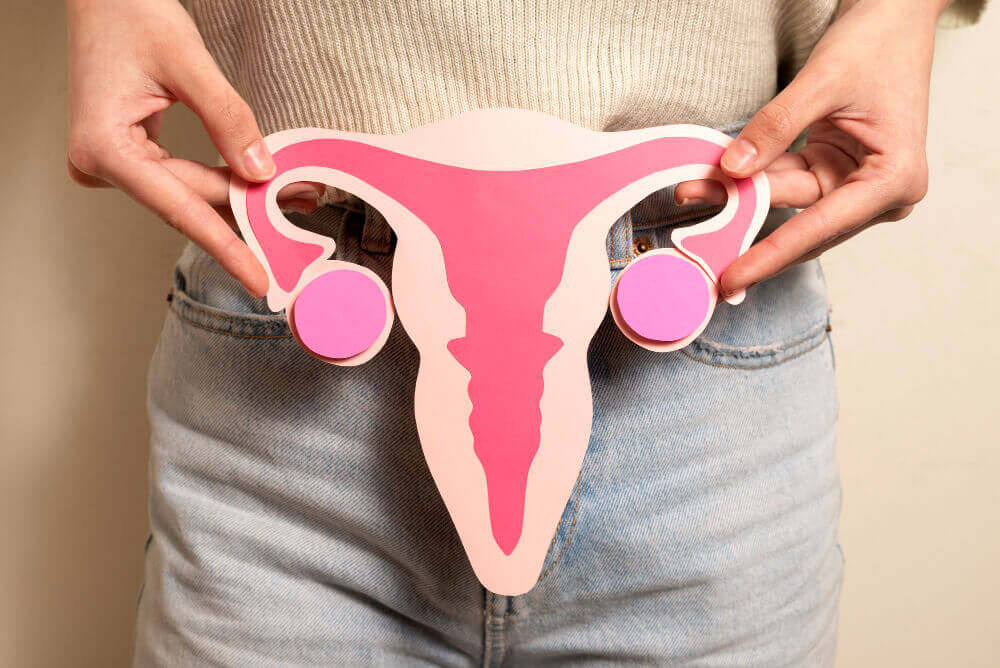Estrogen Hormone and Its Functions
Estrogen is a group of sex hormones that are primarily responsible for the development and regulation of the female reproductive system. However, both males and females have estrogen in their bodies, albeit in different concentrations. The hormone is produced primarily in the ovaries in females and in smaller amounts in the testes in males, as well as in adipose tissues.
Functions of Estrogen in the Body
Estrogen plays a pivotal role in various bodily functions, including:
- Development of Secondary Sexual Characteristics: In females, estrogen is responsible for the development of secondary sexual characteristics such as breast development and the widening of hips during puberty.
- Regulation of Menstrual Cycle: Estrogen is crucial for regulating the menstrual cycle, influencing the growth and shedding of the uterine lining during each cycle.
- Bone Health: Estrogen contributes to maintaining bone density and strength. A decrease in estrogen levels can lead to an increased risk of osteoporosis.
- Reproductive Health: Estrogen is vital for maintaining the health of the reproductive organs, including the uterus and vagina. It also influences cervical mucus production, which plays a role in fertility.
- Cardiovascular Health: Estrogen has a protective effect on the cardiovascular system, contributing to healthy blood vessel function and cholesterol levels.
Estrogen Imbalances and Associated Conditions
Estrogen Deficiency
Estrogen deficiency can occur due to various reasons, including natural aging (menopause in females), surgical removal of ovaries, or certain medical conditions. The consequences of estrogen deficiency include:
- Menopausal Symptoms: Hot flashes, night sweats, mood swings, and vaginal dryness are common symptoms experienced by women during menopause due to a decline in estrogen levels.
- Bone Loss: Estrogen deficiency is linked to an increased risk of osteoporosis and fractures.
Cardiovascular Risks: Reduced estrogen levels may contribute to an increased risk of cardiovascular diseases.
Estrogen Excess
Conversely, excess estrogen levels can lead to various health issues, including:
- Menstrual Irregularities: High estrogen levels can cause irregular menstrual cycles and heavy periods.
- Breast Tenderness: Excessive estrogen may result in breast tenderness and swelling.
- Weight Gain: Estrogen dominance is associated with weight gain, particularly around the hips and thighs.
- Mood Swings: Changes in estrogen levels can impact mood and contribute to mood swings and irritability.
Hormone Therapy as a Treatment Option
Overview of Hormone Therapy
Hormone therapy (HT), also known as hormone replacement therapy (HRT), involves the administration of hormones to supplement or replace the body’s natural hormone levels. In the context of estrogen, hormone therapy is commonly used to address symptoms associated with estrogen deficiency, especially in menopausal women.
Types of Hormone Therapy
- Estrogen Replacement Therapy (ERT): ERT involves the administration of estrogen alone and is typically prescribed to women who have undergone surgical menopause.
- Combined Hormone Therapy (CHT): CHT includes both estrogen and progestin and is commonly prescribed to women with an intact uterus to reduce the risk of endometrial cancer.
- Bioidentical Hormone Therapy: Bioidentical hormones are chemically identical to the hormones produced by the body. This form of hormone therapy is sometimes preferred by individuals seeking a more natural approach.
Administration Routes of Hormone Therapy
- Oral Administration: Hormones can be taken orally in the form of pills or tablets.
- Transdermal Administration: Hormones can be delivered through patches applied to the skin, allowing for a controlled and steady release.
- Topical Administration: Creams, gels, or sprays containing hormones can be applied directly to the skin.
Risks and Benefits of Hormone Therapy
Benefits:
- Relief from Menopausal Symptoms: HT can alleviate hot flashes, night sweats, and other menopausal symptoms.
- Bone Health: Hormone therapy helps maintain bone density, reducing the risk of osteoporosis.
- Cardiovascular Health: Estrogen in hormone therapy may have cardiovascular benefits.
Risks:
- Increased Risk of Blood Clots: Hormone therapy, especially in oral form, may increase the risk of blood clots.
- Breast Cancer Risk: Some studies suggest a slight increase in the risk of breast cancer with long-term hormone therapy use.
- Endometrial Cancer Risk: Estrogen-alone therapy increases the risk of endometrial cancer in women with an intact uterus.
Alternative and Complementary Treatment Options
Lifestyle Modifications
- Diet and Exercise: A healthy diet and regular exercise can positively impact hormone balance.
- Herbal Supplements: Some herbs, such as black cohosh and red clover, are believed to have estrogenic effects and may provide relief from menopausal symptoms.
Non-Hormonal Medications
- Selective Serotonin Reuptake Inhibitors (SSRIs): SSRIs, commonly used as antidepressants, may help manage mood swings and hot flashes.
- Gabapentin: This medication is sometimes prescribed to alleviate hot flashes.
Conclusion
In conclusion, understanding the role of estrogen in the body and the consequences of hormonal imbalances is crucial for maintaining overall health. Hormone therapy, while effective in managing symptoms, comes with risks and benefits that should be carefully considered. Alternative and complementary treatment options, alongside lifestyle modifications, offer additional choices for individuals seeking a holistic approach to hormone balance. Consulting with healthcare professionals is paramount in determining the most suitable treatment plan tailored to individual needs.


